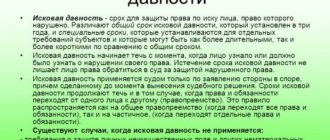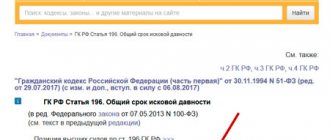Obligation to pay utility bills
Legal regulation of the issue is carried out, first of all, by Government Decree No. 354, issued on May 6, 2011 (last amended on September 15, 2018). The regulatory act explains the procedure for providing housing and communal services to residents of apartment buildings and private buildings. In particular, the document mentions the mandatory payment of receipts (Article 34). This can be done in different ways. Consumers can also pay for utility bills through Sberbank Online.
Consequences of non-payment
For debts on housing and communal services, utility services may apply the following sanctions.
- After the 2-month period of non-payment, a warning letter is sent to the consumer. The document will explain how to apply for a deferment of repayment or debt restructuring.
- From this moment on, the defaulter will be charged a penalty.
- 2 months after the official warning and upon further advance notice, the supply of unpaid housing and communal services will be cut off to the tenant. Even if the debt is repaid at this moment, there will be no further sanctions, and supply will be restored to the consumer.
- If there is further non-payment, the management company terminates the contract and files a claim. If the amount is less than 50 thousand rubles, the case is considered by a magistrate. Within a month after filing a claim, the consumer can still pay voluntarily.
After a court decision on collection, there will be many new options for what can happen for non-payment of rent. This is the freezing of all accounts until the amount of debt is transferred, seizure of property, eviction from housing (at the request of the organization that carries out trust management of the property of the apartment building).
Possible actions of management companies and homeowners associations in the event of debt formation
There are 5 ways to collect debt from a debtor to a management company:
- Preventive measures, that is, preventive work to prevent the occurrence of debts. For example: consequences following non-payment;
- Pre-trial collection - pre-trial collection measures that can help in repaying the debt. For example: conversations with debtors, general meeting of owners;
- Collection through court - collection of debt in court;
- Ensuring the execution of a judicial act of collection;
- Bankruptcy of individuals, that is, the ability to pay off debt through their property.
In addition to the title company, your homeowners' association also has an impact on the repayment of your debt. It can:
- Post the list of debtors for public viewing;
- According to Russian Government Decree 354, HOAs have the right to limit the debtor’s use of utilities;
- File a claim in court to collect the debt;
- Accrue penalties.
Consequences of utility debt
The law provides the following penalties for failure to fulfill obligations:
- Article 155 of the Housing Code - a penalty is charged for each day of delay;
- Government Decree No. 154 - the management company has the right to limit the debtor’s use of utilities;
- Article 3 of the Civil Procedure Code - when the amount of the debt exceeds the permissible norms several times, the management company has the right to collect the debt with the addition of a penalty in court;
- Article 3.5 of the Code of Administrative Offenses - a person who fails to fulfill his obligations under a contract may be subject to an administrative fine;
- According to Article 83 of the Housing Code, a persistent defaulter can be evicted from the house.
Accrual of penalties and how to calculate its size
Citizens who have not paid or paid, but not in full, debts for utility services must pay a penalty in the amount of 1/300 of the refinancing rate
- From 1 to 30 days of debt no penalties are charged
- From 31 to 90 days inclusive, penalties will be charged in the amount of 1/300 of the refinancing rate
- From 91 to the day of actual payment, the refinancing rate will be 1/130
Restricting access to resources
If the debtor does not repay his debt within 90 days, then the management company has the right to disconnect the debtor from utilities (except for cold water and heating). If the owner independently tries to connect to the services, he will face a fine of 10 thousand for individuals, 30 thousand for officials and 100 thousand for legal entities.
Eviction
Sometimes severe measures, such as eviction, may be taken against persistent defaulters. Owners can collect debt through court. In the case where the debtor lives in an apartment that belongs to the municipality, he is evicted to a smaller apartment.
What are the risks of rent arrears?
The expiration of the statute of limitations can be punished by the state in different ways: it all depends on the amount of the debt and on what category the owner of the service premises belongs to:
- Owner of a privatized apartment;
- Owner of municipal housing;
- Owner of the rented premises.
In a privatized apartment
Obligations begin from the moment you begin living in the apartment, regardless of whether it is a temporary or permanent owner. In this case, the debtor will be punished on a general basis
In public housing
In this case, a three-stage system operates:
- A letter is sent to the debtor with information about the debt. The same letter notes that in case of refusal of the debt, the case will be taken to court;
- If the first point does not help, then a second attempt is made to reason with the debtor: the management company makes a call or reminds about the debt in a personal meeting;
- If the debtor still does not pay the debt, then the case is taken to court and the debtor is punished in accordance with the general procedure.
In a rented apartment
Renting an apartment does not relieve you of the responsibility and obligation to pay for utilities. If payment is overdue for more than half a year, an eviction procedure for an apartment with a smaller area is possible.
Consequences for credit history if payments are late
Utility debts are equivalent to credit debts and are entered into the credit history.
In order for your debt to be included in your credit history, one application to the court by the utility service provider is enough. After this, the debtor has 10 days to repay the debt, after which his data and file on the debt are transferred to the credit bureau. Having utility debt can be a huge barrier to getting a loan.
When can a management company sue?
Legislators provide the following conditions:
- accumulation of debt over a six-month period;
- lack of results from the application of preliminary measures (warning, penalty, disconnection);
- refusal of the defaulter to cooperate with the management company (no valid reasons, did not apply for restructuring, etc.).
When filing a claim, the management company can count on full reimbursement of the debt. Let's figure out whether there is a statute of limitations on utility bills.
Application of the limitation period to penalties
One of the problematic issues for business entities when protecting violated rights is the application of the statute of limitations to additional claims presented separately from the main claim.
The expiration of the limitation period, the application of which is claimed by a party to the dispute, becomes the basis for a court decision to reject the claim. As a rule, the main requirement is to collect the principal debt for goods shipped, work performed, services rendered, recovery of unjust enrichment, etc. Additional requirements are the collection of penalties, the presentation of demands for accessory obligations (surety, guarantee, pledge, etc.).
The Civil Code contains only one article regulating the application of the limitation period to additional claims, namely Art. 208 Civil Code. According to it, with the expiration of the limitation period for the main claim, the limitation period for additional claims (penalty, pledge, surety, etc.) expires.
In this article, the legislator named, in particular, such an additional requirement to the main debt as a penalty. However, the list of additional requirements is not exhaustive.
Does Art. 208 of the Civil Code on the requirement to collect interest for the use of other people's funds? Both penalties and interest represent the amount for which the debtor becomes obligated to pay after a certain period of time if the principal obligation is not fulfilled.
Taking into account the established practice of law enforcement and the general civil law nature of penalties and interest for the use of other people's funds, which relate to measures of civil liability for violation of a contractual obligation, the question we posed can be answered in the affirmative. Article 208 of the Civil Code extends its effect to demands for the collection of interest for the use of other people's funds.
Are penalties (in the form of periodically calculated penalties) and interest for the use of someone else's funds subject to recovery after three years after the start of the limitation period for the main claim?
Requests for the collection of penalties and specified interest cannot be satisfied if the defendant has not voluntarily repaid the amount of the principal debt or it has not been forcibly collected. Therefore, payment (collection) of the debt within the limitation period calculated for the main claim excludes the application of Art. 208 of the Civil Code as grounds for refusing to collect penalties for late payment. Only the expiration of the limitation period for the main claim due to the disposition of Art. 208 of the Civil Code entails the expiration of such a period and additional requirements.
Thus, if the debtor repaid the debt within the limitation period or the debt was collected within the deadline in court, the limitation period for the main claim is not considered missed. This excludes the application of Art. 208 of the Civil Code to separately declared claims by the creditor for the collection of penalties and interest for the use of other people's funds.
However, in this case, a logical question arises: how long can one expect compulsory defense of claims for the collection of penalties for late payment of the principal debt?
Penalties and interest for the use of other people's funds are charged from the moment the delay in payment of the principal debt begins until the day of payment for each day of delay.
Thus, for claims for the collection of penalties and interest for the use of someone else’s funds, the beginning of the limitation period is determined for each day of delay in payment, i.e. daily.
The established judicial practice on this issue boils down to the following: for a monetary obligation fulfilled in arrears, penalties and interest for the use of other people's funds can be collected for three years preceding the filing of a claim for their recovery. Let us give an example from judicial practice.
Case plot 1
The plaintiff (subdesigner) and the defendant (general designer) entered into a subcontract agreement (hereinafter referred to as the agreement) for the development of a construction project. According to the agreement, payments between the general designer and the subdesigner were to be made monthly. The basis for settlements is certificates signed by the parties confirming the readiness of the work performed in accordance with the payment schedule after receipt of funds from the customer.
If there is a delay in acceptance and payment, the subdesigner had the right to collect from the general designer a penalty in the amount of 0.15% of the overdue amount for each calendar day of delay, but not more than 10% of its total amount.
The decision of the economic court dated June 13, 2016, which entered into legal force, collected 19,707 rubles from the general designer in favor of the subdesigner. principal debt for work performed. The defendant executed the decision on 08/04/2016.
Plaintiff's position
Referring to the presence of delays in payment by the defendant for work performed under the contract, the plaintiff filed a lawsuit to collect from the defendant the penalties provided for in the contract in the amount of 1971 rubles. and 12,635 rubles. interest calculated based on the refinancing rate on the date of payment (20% per annum for the period of delay from 05/23/2013 to 08/04/2016).
The plaintiff also made reference to clauses 3, 6 of the Instructions on the procedure for settlements between the customer and the contractor for the performance of design and survey work for the construction of facilities, approved by Resolution of the Ministry of Construction and Architecture of February 28, 2003 N 3, indicating as the proper payment period 5 days from the date of receipt by the defendant certificates
Defendant's position
During the trial, the defendant did not deny the fact of delay in fulfilling his obligations. However, he pointed out that the plaintiff had missed the statute of limitations on claims for payment of penalties and filed a corresponding petition.
Court position
The fact of delay in payment for the cost of work performed by the plaintiff was confirmed by the case materials and was not disputed by the defendant. Therefore, the court of first instance, on the basis of Art. 311, 366 of the Civil Code made a decision to partially satisfy the claim and collect contractual penalties and interest from the defendant in favor of the plaintiff for the use of other people's funds.
Taking into account the defendant’s request to apply the statute of limitations, the court of first instance, based on the provisions of Art. 197, 200, 201 of the Civil Code, rejected the claim for the collection of penalties and interest accrued for the period before September 30, 2013 (outside the statute of limitations).
The decision of the appeal instance of the economic court dated January 31, 2017 left the decision of the first instance court unchanged.
Position of the cassation court
In the cassation appeal, the defendant asked:
- the court decisions adopted in the case should be canceled due to an improper assessment of the factual circumstances and a violation of substantive law;
- refuse to satisfy the stated demands of the plaintiff.
In support of the cancellation, he pointed to the incorrect application by the courts of the rules of civil law governing the limitation period and the incorrect determination of the beginning of the limitation period.
The cassation court, when reviewing these court decisions, noted that the courts correctly did not take into account the defendant’s arguments about the expiration of the statute of limitations for all stated claims. These arguments were not based on the norms of the current legislation.
Failure to pay the principal is a continuing violation of the performance of a monetary obligation. For each day of such a violation, the creditor (plaintiff) has the right to collect penalties and interest for the use of someone else’s money. For each day of violation, a three-year limitation period is calculated.
Accordingly, the limitation period for claims for the collection of penalties (penalties) under Art. 311 of the Civil Code and interest for the use of other people's funds under Art. 366 of the Civil Code in accordance with Art. 197, 201 of the Civil Code must be determined for each day of violation of the obligation to pay the principal debt.
The cassation court left the court decisions of the lower authorities unchanged. The limitation period for additional claims for payment of interest and penalties is calculated for three years that precede the circumstance that entails a break in the limitation period. This circumstance is the filing of a claim or recognition of a debt for the specified interest or penalty.
Payment of penalties and interest for the use of other people's funds is a current measure of liability, suggesting that the creditor has a right to claim them on a daily basis until the actual repayment of the debt.
Accordingly, the limitation period for penalties and interest accrued for each day begins to run independently and expires for each day on the corresponding day after the expiration of the statutory limitation period.
The second situation that I would like to examine is related to the problem of applying the statute of limitations when the creditor did not collect the principal debt during the limitation period.
Case plot 2
The plaintiff and defendant entered into a contract for the sale and purchase of real estate. Money for the object should have been transferred by December 31, 2013. The defendant did not do this. With payment orders, he transferred the debt under the contract after the expiration of the limitation period for forced collection.
Due to the delay in payments stipulated by the contract, the plaintiff filed a demand for the collection of a fine from the defendant in the amount of 11,425 rubles.
Court position
The Economic Court refused to satisfy the stated claim due to the expiration of the statute of limitations established by civil law for the protection of the violated right.
As a general rule, a violation of a subjective right is not enough to trigger the limitation period. It is necessary that the authorized person knew or should have known about the violation. According to contractual legal relations, Art. 201 of the Civil Code established exceptions to the general rule.
The payment obligation stipulated in the real estate purchase and sale agreement was determined by a specific deadline. Therefore, the court determined the beginning of the limitation period from the moment the deadline for fulfilling this obligation expired.
In accordance with Art. 208 of the Civil Code, with the expiration of the limitation period for the main claim, the limitation period for additional claims (penalty, pledge, surety, etc.) expires.
By virtue of Art. 204 of the Civil Code, the actions of the obligated person, indicating the recognition of the debt, interrupt the running of the limitation period. At the same time, recognition by the debtor of the principal debt does not indicate recognition of the creditor's claims that may be associated with it (payment of penalties, interest for the use of other people's funds, compensation for losses, etc.).
In connection with the above, such recognition cannot be regarded as a basis for interrupting the limitation period for interrelated claims (clause 14 of the Resolution of the Plenum of the Supreme Economic Council of December 2, 2005 N 29 “On some issues related to the application of limitation periods”).
Taking into account the above, the court regarded the defendant’s voluntary payment of the debt in April 2021 (after the expiration of the statute of limitations established by law) as a fact that does not indicate recognition of the requirement to pay a penalty, as well as as a circumstance that does not entail an interruption of the limitation period.
The plaintiff appealed this decision to the court of appeal and cassation, but they left it unchanged.
Thus, the limitation period is interrupted only by the acknowledgment of a debt made within the limitation period. Payment of the principal debt after the expiration of the limitation period cannot interrupt its course, since the period has already expired before that moment.
A break in the running of the limitation period in connection with the commission of actions indicating the recognition of a debt can only take place within the limitation period. In the situation considered, on the basis of Art. 208 of the Civil Code, the court stated the expiration of the limitation period on the claim for the collection of a penalty in connection with the expiration of the limitation period on the claim to collect the amount of the principal debt.
In the legislation, one more question remains without a direct answer: does the statute of limitations apply to additional claims if the principal debt is statute-barred, but the defendant has not raised this objection to the claim for collection of the principal debt? At the same time, the defendant objects to the statute of limitations on the claim for the collection of an additional claim from him (interest for the use of other people's funds, penalties).
It seems that the limitation period for the additional claim should be considered to have occurred. The mere fact that the court satisfied the claim for collection of the principal debt is not a sufficient basis for concluding that the plaintiff did not miss the statute of limitations for this claim. He has the right to obtain judicial protection even after the expiration of the statute of limitations. And in the absence of a statement from the debtor regarding the application of the limitation period, the court must consider the case on its merits without taking into account the rules on limitation of actions.
conclusions
1. Payment of penalties and interest for the use of someone else’s money is a current measure of liability, a lasting sanction, suggesting that the creditor has a right to claim on them every day until the actual payment of the debt. Accordingly, for each day of delay, you can conditionally allocate your own limitation period.
2. The limitation period for additional claims for payment of interest for the use of other people’s funds and penalties is calculated for three years that precede the circumstance that entails a break in the limitation period. This circumstance is the filing of a claim for collection of the principal debt or the recognition of a debt for interest or a penalty.
3. The obligation to pay penalties and interest for the use of someone else’s funds is considered to arise upon the expiration of the period for which they were accrued, and the three-year period preceding the date of filing a claim for their recovery has not expired.
4. A break in the limitation period in connection with the commission of actions indicating recognition of a debt can only take place within the limitation period, and not after its expiration. The person filing the claim must prove the existence of circumstances indicating an interruption or suspension of the limitation period.
5. Recognition of the principal debt, including in the form of its payment, cannot in itself serve as evidence of recognition of additional claims of the creditor (in particular, penalties, interest for the use of other people's funds). Accordingly, it cannot be regarded as a basis for interrupting the limitation period for additional requirements.
6. Taking into account the general civil law nature of penalties and interest for the use of other people’s funds, related to measures of civil liability for violation of a contractual obligation, Art. 208 of the Civil Code extends its effect, among other things, to demands for the collection of interest for the use of other people's funds.
7. With the expiration of the limitation period for the principal debt, the limitation period for all additional claims for the entire period of delay expires. Including for the last three years preceding the filing of a claim in court for collection of the principal debt and penalties.
Limitation period for debts
Money not received for utility services provided is returned only within 3 years. Such debts for 4, 10, 15 or more years expire. Consequently, the limitation period for utility payments is a general period of three years (Article 196 of the Civil Code of the Russian Federation). The countdown of the three-year period begins from the date of receipt of the first outstanding receipt (Article 200 of the Civil Code).
Recalculation
Any debtor can receive this kind of relief if he himself applies to the Criminal Code for pre-trial resolution of the conflict situation. Utilities may take this measure in other cases:
- the consumer will face long and expensive treatment;
- he travels abroad and physically will not be able to pay the bills;
- After a fire or other disaster, the tenant’s financial situation sharply worsened.
The recalculation procedure is provided for in Section VIII of the Government of the Russian Federation Decree No. 354 of 05/06/2011.
Actions of utility companies in case of debt
The organization does not have the right to submit an application for restoration of the missed deadline. The law allows this possibility only for individual creditors if there are valid reasons related to the person’s personality. This can be done in case of a long-term illness, or while on a business trip, when it was not possible to submit documents to the court.
Even partial payment of the debt means that the defendant acknowledges it. This will become the basis for recalculating the period. The creditor may call for fulfillment of the obligation, talk with the debtor in person or by telephone, doing everything possible to get him to acknowledge the debt.
In addition to the principal debt, management companies collect penalties for each day of delay. When filing a claim in court, it is required to indicate not only the debt, but also penalties.
To collect money forcibly, an application is submitted. It includes the following data:
- Name of the court without abbreviations.
- Details of the plaintiff and defendant indicating telephone number, residential address, registration.
- Title of the official paper.
- Indication of the amount, circumstances of the case, types of debt for utility services.
- The requirement to collect money is mandatory.
- Links to legal norms.
- Signature and date.
- Attachments to the document.
The latter is evidence of debt, account statements, and a receipt for payment of state fees. You can submit a statement of claim in person or through a legal representative. To save time, it is recommended to do this in electronic format on the court’s website.
After the application is accepted for consideration, the parties may be summoned to a meeting, but this is not necessary to make a decision. The latter is accompanied by the issuance of a writ of execution, which is handed over to the bailiff for enforcement of the decision.
The task of the FSSP representatives is to find money and property from the defendant that can be used for sale. For this purpose, bailiffs interact with banking organizations and the debtor’s employer. According to the relevant resolution, funds are automatically debited from his bank accounts. Bailiffs come to the defendant’s home to make an inventory and seize his property. After this, the property is sold at auction. Other measures include a ban on traveling abroad and seizure of a vehicle.
Information catalog of bailiffs - find your bailiff
From the 31st day of debt occurrence, the lender charges penalties in the amount of 1/300 of the refinancing rate. Even if the tenant ignores this measure, the fine can subsequently be collected in court.
The powers of the management company include disconnecting utilities. This is a drastic decision that is taken when notification measures have been exhausted.
According to the rules, the company is required to send written notice to the defaulter 30 days before disconnecting electricity, water and gas supplies. As a rule, such measures are taken if there is a debt of more than three months. Utilities can turn off cold water and electricity without a court order. To prevent the defendant from challenging such an action in court, the procedure must comply with the following rules:
- The non-payment period is three months or more.
- The service provider sent a written notification with hand delivery or other means confirming the fact of receipt of the information.
- The debtor has 20 days from the date of receipt of information to pay the debt; even if part of the amount is paid, utilities are not turned off.
- After this period has expired, the management company sends another notification indicating that the measure will be applied in three days.
Court for non-payment of utilities
When it comes to extremes, the culprit should be aware of several important circumstances. Firstly, the statute of limitations for utility payments cannot exceed 3 years. Secondly, there are grounds for appeal, which periodically even lead to complete write-off of the debt.
Is it possible to challenge a claim?
The main reason for expressing disagreement is the violation of the statute of limitations by the Criminal Code. You can also challenge a claim for other reasons:
- utility companies inflate the amount of debt;
- the consumer did not receive receipts for housing and communal services, so he could not know about the debt;
- Residents were unjustifiably charged a penalty.
You can request a recalculation of the debt taking into account these counters. In any case, you need to file a counterclaim. It is necessary to submit documents proving the right of the interested party.
How to draw up an application for the application of the statute of limitations
The form of the application is optional. However, the following provisions are required.
- The title indicates the addressee of the appeal (name of the judicial authority), information about the participants in the litigation. The addresses of the parties and telephone numbers must be indicated.
- Describing the essence of the petition, it should be explained that the claim filed against the defendant violates the terms of the current deadline. It is important not to make a mistake about the application number and the essence of the requirements.
- Next, you should ask for consideration of the deadlines in accordance with Art. 196 of the Civil Code and incomplete or absolute cancellation of requirements due to their violation.
When drawing up a petition, it is important to remember that the limitation period is suspended for the period of litigation, and special periods (shorter or longer than usual) may also be assigned. The statute of limitations begins to run from the moment the first unpaid receipt is received.
What documents need to be attached
You can present the court with any evidence that you are right. Typically, people send receipts indicating payments made for housing and communal services, personal account statements and other supporting documents. The application is submitted to the court office during a personal visit or sent by registered mail.
Judicial review of a debt case
At the initial stage of debt formation (up to 3-6 months), housing and communal services representatives use their own methods of influencing premises owners: sending notifications, calling or even visiting. If the measures do not bring results, the housing and communal services organization goes to court.
However, often the statement of claim is sent after a period of time significantly exceeding the statute of limitations. At the same time, the lawyer from the housing and communal services will not report the end of the period, since he has the right to withhold this information.
To reduce the amount of payments or cancel them completely, the defendant is required to declare the application of the statute of limitations. According to paragraph 11 of the Resolution of the PVS No. 43 of September 29, 2015, this can be done in free form, in writing or orally. It is important to inform about your right before the court decision is announced, otherwise the entire amount of the obligation will be collected from the debtor. Mostly, an application for the application of a limitation period is drawn up in writing (clause 2 of Article 199 of the Civil Code of the Russian Federation).
Article 199. Application of the limitation period (Federal Law No. 51)
Sample application for application of limitation period
The document is filled out in free form indicating the defendant’s personal data and contact information. Address the paper to the court where the debt case was filed. Usually this is the district authority at the citizen’s place of residence or a justice of the peace (based on the amount of obligations). The text describes the current situation and asks to use the statute of limitations. It is recommended to refer to the articles that are the basis for the implementation of the right (Articles 199, 196, 200 of the Civil Code of the Russian Federation). If additional documentation is attached to the application, it is indicated at the end. Next, they sign and set the date.
Example of a statement on the use of a limitation period
The paper is sent to the court at any stage of the process, but always before the final decision is announced.
List of documents
The application is accompanied by documents confirming the information stated in the text or during the hearing of the case:
- housing and communal services receipts for the previous 3 years;
- if the debtor does not agree with the assigned amount, he provides his own calculations;
- in case of difficult financial condition, indicate its reasons by attaching certificates from work, disability, credit obligations, and so on;
- other clarifying documents involved in the case.
Regular non-payment of housing and communal services receipts in just a few months creates an impressive amount of the amount to be collected. The longer a property owner does not pay for utility bills, the more difficult it becomes to get out of the debt hole. Using the statute of limitations, which is 3 years for utility payments, allows you to reduce or cancel the accrued amount. However, to do this, it is important to notify the court of your right and not take actions indicating recognition of your debt.
Arbitrage practice
If representatives of the management company competently draw up a claim, they usually win debt collection cases. However, courts often side with the defendant when deadlines are violated. The Criminal Code counters by replacing the requirements and reducing material claims to 3 years. If you do this throughout the process, the decision will be satisfied. In general, the application of the statute of limitations for utility payments is not disputed by judges.
Often, the return of a certain percentage of the debt during the consideration of the case in court leads to the cancellation of the plaintiff’s application. This happens due to the discrepancy between the monetary claims and the current situation, since after partial repayment the amount decreases, and it also turns out that the defendant admitted the debts.
There is an illustrative example in practice. Three years ago in St. Petersburg, the inviolable only housing of defaulters was seized. The Supreme Court did not overturn this controversial decision because the measure did not result in evictions. The owners were only limited in the right to sell, change or inherit the disputed living space until debts are repaid (Sunday Resolution No. 50 2015/17/11).
Can the debt be written off?
The tenant only needs to contact the Criminal Code. Debt restructuring for housing and communal services is possible at any stage of a protracted conflict. Complete write-off is possible only in court. During the trial, it is necessary to prove the illegality of the claims (for example, if the debt has passed the statute of limitations). You can significantly reduce your payments in the following ways:
- prove a valid reason for non-payment, which will cancel the imposed penalties and lead to a fairly profitable recalculation;
- require recalculation taking into account these metering devices.
Another way to completely remove debt is bankruptcy of an individual (must be recognized by the court).
If the deadline has passed, will the debt be written off after 3 years or the claim period?
Debt write-off after the expiration of the claim period can be achieved if:
- During the court hearing, it will become known that the defendant has gone through bankruptcy proceedings;
- The statute of limitations will interrupt the flow of the debt;
- They will establish a time frame, where the starting point is the moment when the service provider learned about the debt.
Legislation on writing off housing and communal services debts older than three years
According to Chapter 26 of the Civil Code, the expiration of the statute of limitations is not a basis for terminating an obligation. Debt write-off is a right, not an obligation, of the creditor.
Amounts of state duties
The amount of fees for filing claims in courts of general jurisdiction and arbitration courts will differ. The fee for a claim for collection of non-payments in the magistrate's court is set as a percentage. For a statement of a non-property nature, for example, about recognizing the actions of the owner as invalid, the state fee is 4 thousand rubles. For supervisory appeals, the fee is 50% of the initial fee. The amount of the fee to the arbitration court is calculated using a similar scheme, but in this case the amount for monetary claims will be different.
Changes are regularly made to the Tax Code, including changes to the amounts of state duties. In case of incomplete payment of the fee, the judges will leave the claim without progress. If the amount of the fee is large and there are not enough available funds, an application to reduce the amount of the fee is drawn up. But this will require a strong economic justification:
- difficult financial situation;
- a large number of debtors, while the plaintiff company fulfills its obligations to resource supply companies in a timely manner. If there are reconciliation reports, you can attach copies of them and a summary table of the total amount of debt for the object.
The plaintiff may ask to be exempted from paying the fee completely or to reduce the amount of the fee and assign obligations to the defendant.









